
In this article, we will explore how technology has transformed the landscape of reading habits. We’ll delve into the pros and cons of digital reading, the rise of e-books and audiobooks, and the changing dynamics of libraries and bookstores in the digital age.
The Digital Transformation of Reading
In the age of smartphones, tablets, and e-readers, the way we read has undergone a profound transformation. The digitization of literature has brought books to our fingertips, making the world of reading more accessible and convenient than ever before. Yet, this digital revolution has also sparked debates about the impact of technology on our reading habits.
This article explores the changing landscape of reading in the digital age, shedding light on the rise of e-books, the allure of audiobooks, and the evolving roles of libraries and bookstores. As technology continues to shape our daily lives, it has also left its mark on the way we read, discover, and engage with books.
In the pages that follow, we will navigate the digital terrain of reading, examining how technology has both broadened our literary horizons and challenged our traditional reading habits. We’ll uncover the advantages and challenges of e-books, explore the immersive world of audiobooks, and investigate how libraries and bookstores have adapted to this new era.
As we journey through the digital realm of literature, we’ll analyze the profound impact technology has had on the way we read and consider the future of reading in an increasingly digital world. Let’s embark on this exploration of reading in the digital age, where technology is reshaping the way we experience the written word.
The Rise of E-Books
As we delve into the digital transformation of reading, it’s impossible to overlook the meteoric rise of e-books. These electronic versions of printed books have redefined the reading experience in numerous ways. Let us explore the phenomenon of e-books and their impact on readers:
A. The Digital Library

E-books have given readers access to a vast digital library at their fingertips. No longer constrained by the physical limitations of bookshelves, readers can carry an entire library with them wherever they go.
If you are in our Digital Library Project, kindly subscribe for upcoming news
B. Accessibility and Convenience
The convenience of e-books cannot be overstated. Readers can purchase and download books instantly, often at a lower cost than print versions. They can adjust font sizes, use built-in dictionaries, and read in the dark thanks to backlit screens.
C. Screen Time and Eye Comfort
While e-readers have advantages, the increased screen time associated with digital reading raises concerns. Readers can mitigate potential issues like eye strain and sleep disruption.
D. Preservation of Physical Space
E-books have made moving and decluttering easier, as they don’t take up physical space. Readers no longer need to decide which books to keep due to space limitations.
E. The Debate Over Tangibility

There is an everlasting ongoing debate about the tactile experience of reading. Some readers treasure the feel of a physical book, while others appreciate the portability and convenience of e-books.
F. The Challenge of Discoverability
In a vast sea of e-books, discoverability can be challenging. It is sometimes overwhelming to figure out how readers can find the right e-books amidst the digital abundance.
The rise of e-books has revolutionized the way we read, providing immense convenience and a digital library of unprecedented scale. However, this convenience is not without its drawbacks. In the following section, we’ll explore another digital format that has garnered a dedicated following: audiobooks.
Audiobooks and the Power of Narration
Audiobooks have carved out a unique niche in the digital reading landscape, captivating readers through the art of narration. This section delves into the realm of audiobooks, exploring the auditory experience of literature:
A. The Appeal of Audiobooks
Audiobooks offer a compelling alternative to traditional reading. Some readers are more drawn to this format for many reasons, including the ability to multitask while listening.
B. Immersive Storytelling

Narrators play a pivotal role in bringing audiobooks to life. Skilled narrators infuse characters with personality and transport listeners into the world of the story.
C. Accessibility for Diverse Audiences
Audiobooks provide an accessible format for individuals with visual impairments or reading difficulties. Hence the importance of inclusivity in literature.
D. Audiobooks and the Modern Lifestyle
In today’s busy world, audiobooks cater to the on-the-go lifestyle. They enable listeners to enjoy books during commutes, workouts, and household chores.
E. Challenges in Audiobook Consumption
Audiobooks come with their own set of challenges, including narrator preferences, speed of narration, and pronunciation of unfamiliar words. There could be strategies for mitigating these issues.
F. Audiobooks as a Complement to Print and E-Books
Many readers incorporate audiobooks into their literary routine alongside print and e-books, making it part of a multi-format reading experience.
Audiobooks have redefined the act of reading, creating a multisensory experience that blends storytelling with the power of narration. In the next, we’ll examine the evolving roles of libraries and bookstores in the digital age.
Libraries and Bookstores in the Digital Era

Libraries and bookstores have long been the sanctuaries of book lovers, and they, too, have adapted to the digital age, changing roles of libraries and bookstores in the digital era:
A. Digital Offerings in Libraries
Libraries have expanded their services to include e-books, digital audiobooks, and online resources. There are some advantages of these digital offerings, such as instant access and the absence of late fees.
That is what our digital library is all about *hint*hint* Sing up to our mailing list for updates and news
B. The Transition to E-Readers
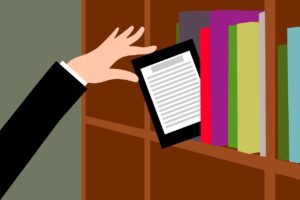
Many libraries now offer e-readers for borrowing, allowing patrons to explore e-books without the need for personal devices.
C. The Role of Librarians
Librarians continue to play a crucial role in guiding readers through the digital landscape. They assist patrons in navigating e-book collections and providing reading recommendations.
D. The Digital Bookstore Experience
Bookstores have also adapted to the digital era by offering e-books for purchase. Most bookstores maintain a presence in the digital realm, selling both print and digital books.
E. Challenges for Independent Bookstores

Independent bookstores face unique challenges in the digital age. They mostly compete with larger online retailers and the strategies they employ to thrive.
F. The Importance of Physical Spaces

Despite the digital shift, physical libraries and bookstores continue to serve as community hubs and gathering places for book enthusiasts. They endure significance of these spaces.
Libraries and bookstores have embraced the digital era, expanding their offerings to cater to both print and digital reading preferences. What could not be avoided is the fact technology has impacted readers’ habits and the way they discover, access, and engage with books.
The Impact on Reading Habits
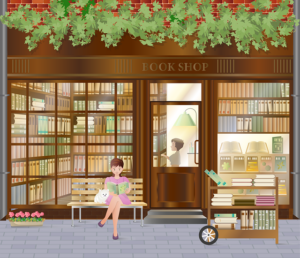
The advent of digital technology has significantly reshaped the reading landscape, impacting the way readers engage with books and literature. In this section, resulting in a profound impact of technology on reading habits:
A. Changing Reading Preferences
Technology has given rise to diverse reading preferences. Some readers gravitate towards traditional print books, while others prefer the convenience of e-books or the immersive experience of audiobooks.
B. Discovering New Titles
The digital era has transformed the way readers discover new titles. Algorithms, online book communities, and recommendation engines factor in helping readers find books tailored to their interests.
C. Accessibility and Inclusivity
Digital technology has made literature more accessible to diverse audiences. Readers with disabilities can utilize screen readers and text-to-speech software, while those learning a new language can benefit from translation features.
D. Challenges of Screen Time
Increased screen time from digital reading can pose challenges, such as eye strain and disrupted sleep patterns.
E. Impact on Print Publishing
The digital age has influenced print publishing, from the rise of print-on-demand services to the resurgence of independent publishing. Both traditional and self-publishing have adapted.
F. Evolving Reading Habits in Young Readers
Young readers, in particular, are growing up in a digital age. Technology has influenced their reading habits, from interactive e-books to educational apps.
The impact of technology on reading habits is multifaceted, affecting everything from reading preferences to how readers discover and engage with books. In the following section, we’ll explore strategies for striking a balance between digital and print reading.
Balancing Digital and Print Reading

The coexistence of digital and print reading offers readers a spectrum of choices. However, balancing these formats is essential to create a well-rounded reading experience. In this section, we’ll explore some strategies for finding equilibrium between digital and print reading:
A. Setting Digital Boundaries
Establishing limits on screen time is crucial, especially for young readers by managing and monitoring digital reading to prevent excessive exposure.
B. Embracing the Joy of Tangible Books
There is a unique enduring appeal of physical books, to rekindle the joy of holding a printed book in your hands and a neverending satisfaction in building personal libraries.
C. Curating a Varied Reading List
Readers can create diverse reading lists that include both digital and print books. We suggest selecting titles in different formats, ensuring a balanced reading diet.
D. Utilizing E-Readers for Specific Situations
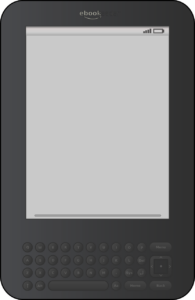
E-readers have their advantages, especially for travelers and those with limited space. There is therefore a way to utilize e-readers effectively.
E. Encouraging Discussions About Reading Format
Open discussions about the pros and cons of digital and print reading with family, friends, or book clubs, sparking conversations about reading preferences.
F. Exploring Hybrid Reading
Some readers opt for hybrid reading, using both digital and print formats simultaneously. For those who prefer it that way, this approach can be enjoyable and practical especially when the digital format is the audio version of the book.
Striking a balance between digital and print reading empowers readers to embrace the best of both worlds. It ensures that the benefits of technology are harnessed while preserving the timeless joy of reading physical books. In the next section, we’ll ponder the future of reading in an increasingly digital world.
The Future of Reading in a Digital World

As technology continues to evolve, it’s only natural to wonder about the future of reading in a world that is becoming increasingly digital. In this section, we’ll contemplate the potential trends and innovations that may shape the reading experience in the years to come:
A. Virtual Reality and Enhanced Storytelling
Emerging technologies like virtual reality (VR) have the potential to transform storytelling into immersive experiences transporting readers into the heart of a story.
B. Enhanced E-Books and Multimedia Integration
E-books are likely to become more interactive, with multimedia elements such as videos, soundtracks, and animations enhancing the reading experience. There possibilities and challenges of this digital evolution.
C. Artificial Intelligence and Personalized Recommendations

AI-driven recommendation systems are already helping readers discover books tailored to their tastes. AI could potentially refine and personalize reading recommendations in the future.
D. Expanding Digital Libraries and Global Accessibility
Digital libraries will continue to grow, expanding access to literature around the world. Increased global accessibility can contribute to a more diverse literary landscape.
Speaking of digital libraries, here comes the time to remind you that singing up to our Digital Library Project wouls help and support us.
E. The Role of Independent and Self-Publishing
The digital age has democratized publishing, giving rise to independent and self-published authors. This trend will shape the future of literature.
F. Preserving Print and Bookstore Experiences
As we move deeper into the digital era, there will be a growing appreciation for the physicality of books and the unique experiences offered by bookstores. We’ll consider how print books and physical bookstores will endure.
The future of reading promises to be a fascinating blend of innovation, tradition, and accessibility. It’s a world where technology enhances the reading experience while maintaining the timeless magic of stories and the joy of holding a book in one’s hands.
In the conclusion, we’ll summarize the key takeaways from this exploration of reading in the digital age and emphasize the enduring power of literature.
Navigating a Digital Literary Odyssey

As we conclude our exploration of reading in the digital age, one truth stands resolute: literature endures and evolves. The digital transformation of reading has ushered in a new era, where e-books, audiobooks, and a wealth of technology coexist with the cherished traditions of print books, libraries, and bookstores.
The digital landscape offers boundless possibilities for readers, from immersive storytelling through virtual reality to AI-guided personalized recommendations. At the same time, it’s essential to preserve the joys of printed books and the irreplaceable ambiance of physical bookstores.
The future of reading is an odyssey, where literature navigates the seas of innovation and technology while anchored in the timeless harbor of storytelling. As readers, we are the captains of this voyage, charting a course through digital libraries, multimedia narratives, and the comforting embrace of printed pages.
In a world where screens are ubiquitous, the book remains a sanctuary. It’s a place of refuge, inspiration, and connection. The written word continues to weave the fabric of our lives, binding generations through the magic of storytelling.
As we look ahead to the ever-evolving literary landscape, one thing remains certain: the enduring power of literature to inspire, captivate, and transcend time. We are fortunate to be the readers of a world where both tradition and innovation enrich our reading experience. The future is digital, but the essence of literature remains timeless.
Thank you for embarking on this literary journey through the digital era. May your reading adventures be boundless, your stories immersive, and your love for literature everlasting.
Join the Conversation: Share Your Vision
The future of reading is not just a passive journey but a vibrant conversation. We invite you, as readers and literary enthusiasts, to be active participants in shaping this narrative. Share your thoughts, dreams, and visions for the future of reading.
Feel free to use these speaking points in your clubs and/or class.
- Share Your Reading Rituals: What is your ideal reading experience in the digital age? Do you mix print and digital, or do you have a preference?
- Tech and Tradition: How do you envision the coexistence of technology and traditional reading in the future? What innovations excite you the most?
- Literary Communities: Leave a comment, start a debate on here, join book clubs, literary forums, or online reading groups. Engage with fellow readers to discover new perspectives and recommendations.
- Digital Literacy Initiatives: Support and advocate for digital literacy programs in your community, ensuring that everyone has access to the world of digital reading.
- Preserve the Printed Word: Celebrate your local bookstores and libraries, attend author readings, and participate in events that honor the enduring charm of printed books.
- Explore Emerging Formats: Be open to new formats and experiences. Embrace the possibilities of VR storytelling, multimedia narratives, and AI-driven recommendations.
- Engage with Emerging Authors: Seek out the works of independent and self-published authors. Support emerging voices in the digital literary landscape.
The future of reading is an open book, waiting for your contributions and insights. Join the conversation, share your vision, and be a part of the ongoing story of literature in the digital age.
This article invites you to celebrate the rich diversity of reading experiences in our digital world and cherish the timeless magic of books.
In a world where technology has woven itself into the fabric of our lives, the realm of reading has not remained untouched. The digital age has ushered in new formats, experiences, and opportunities for readers. Whether you find solace in the pages of a printed book, relish the convenience of e-books, or immerse yourself in the auditory delight of audiobooks, the future of reading is a diverse landscape of possibilities.
As we navigate this digital literary odyssey, it’s crucial to strike a balance between the advantages of technology and the timeless joys of traditional reading. Embrace the innovations of the future, from virtual reality storytelling to AI-driven recommendations, while continuing to cherish the tactile experience of print books and the ambiance of bookstores.
Reading is a voyage of discovery and imagination, and we, as readers, are the captains of this journey. Our choices, preferences, and dreams will shape the literary landscape of tomorrow. In this evolving world, literature remains a powerful force, transcending time and connecting generations.
So, let us celebrate the past, embrace the present, and welcome the future. The essence of literature endures, and the future of reading is a canvas awaiting the strokes of your imagination.
Thank you for accompanying us on this exploration of reading in the digital age, where tradition and innovation coexist to enrich our literary adventures. May your reading journey be filled with wonder, inspiration, and boundless stories.
As a literary trailblazer, you can help ensure that the future of reading is a world of rich diversity, innovation, and inclusivity. Join the journey, share your vision, and leave your mark on the evolving landscape of literature and of course, do not forget to support our Digital Library Project
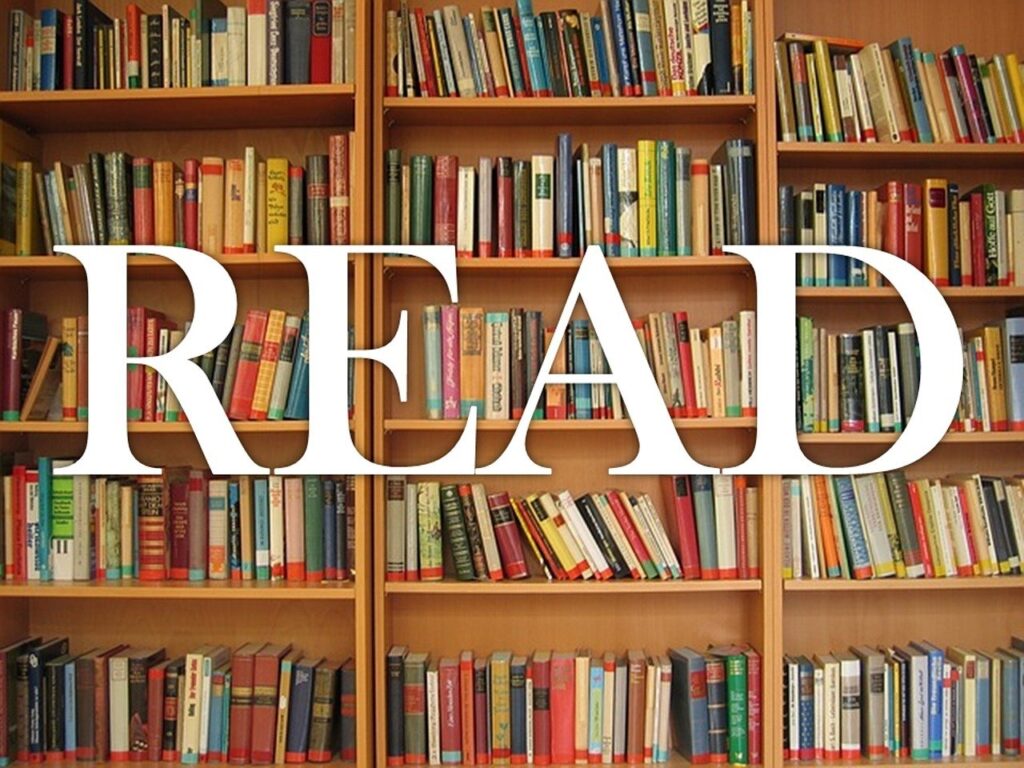
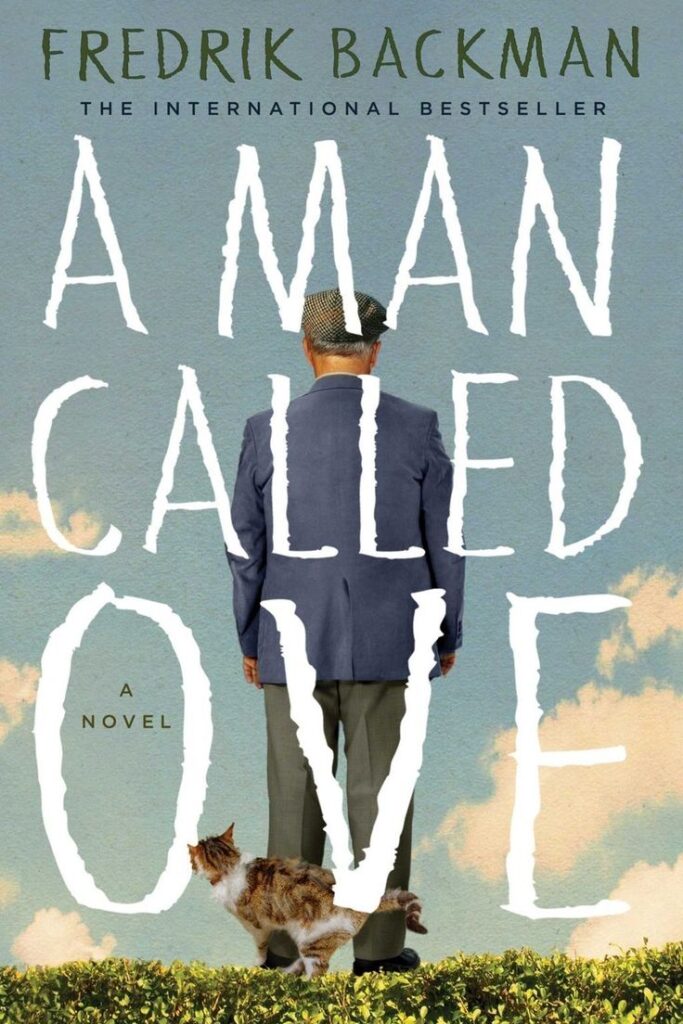
Hi there!
Great article. Let me share some of my experience on how I got on board with electronic versions of books.
I had moved back to a non-English speaking country, and at the time there wasn’t a large choice of books that weren’t related to universities’ curriculums.
After crying for some time, I decided to give ebooks a try and being a tactile reader, it was one of the hardest transitions I have ever made. It took me a long while to enjoy the story and not fixate on the format it was packaged.
After another while (years) I tried audiobooks. And now, they’re my favorite format to enjoy a book. Well, my favorite thing to do is actually listen to the audiobook while reading that same title, either physical or electronic.
So yeah! While the switch wasn’t by choice at first -it was either that or stop reading- I now cannot imagine myself uneasy with any format. Except maybe for PDF… I still am not found of PDFs for a long read.
I’ve enjoyed your post and I’m looking forward to reading the next one.
This is my comment.
I think technology had a great impact on accessibility (through class, disability or even geography) and on the sense of community in the reading world. Truly, it doesn’t get enough credit for all the good it has on our reading lives. Thank you for this article.
Hello there! Very enlightening article, thank you so much for sharing.
I won’t pretend I’m anywhere near a bookworm or a reader myself, but I can imagine how much technology revolutionized reading in general. To be frank, I can hardly remember the last time I held a book, but I do enjoy reading fanfictions online and all sorts of articles that draw my attention, be it educative or just for personal pleasure.
Keep up the good work, I wish you nothing but the best! Cheers!
Hello there! Very enlightening article, thank you so much for sharing.
I won’t pretend I’m anywhere near a bookworm or a reader myself, but I can imagine how much technology revolutionized reading in general. To be frank, I can hardly remember the last time I held a book, but I do enjoy reading fanfictions online and all sorts of articles that draw my attention, be it educative or just for personal pleasure.
Keep up the good work, I wish you nothing but the best! Cheers